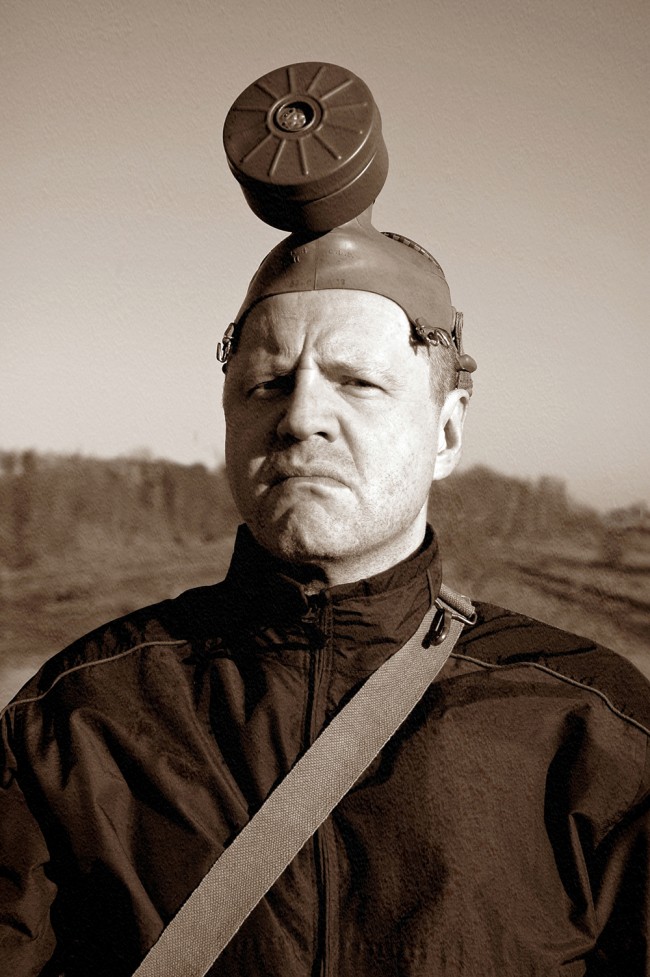Industrial music and science fiction are straight-up chocolate and peanut butter: a two great tastes that taste great together combo. In all likelihood I’m not telling you anything new – a quick perusal of the long-departed sloth.org sample list yields almost nothing but science fiction and horror flicks – but the connection between the two traditions runs deeper than some quick snippets of the Strangers’ dialog from Dark City or Aliens klaxons. Science fictional concepts and themes are inextricable from industrial music, new and old, and given that SF is my bread and butter outside of writing about Our Thing (holler if you wanna read a 150 page ramble about critical theory, animal studies, Octavia Butler, and Philip K Dick), I thought I’d take a quick glance at some connections between science fiction literature and industrial. Take this very much in the same spirit as the “sample killfile” pieces: a conversation starter rather than an authoritative list.
Foundation
Separate from straight-up sampling (another check of the sloth list emphatically shows that not every movie Puppy sampled is a classic) are more subtle references to science fiction traditions. As excellently documented by Alex Reed in Assimilate, the early history of industrial is shot through with an appreciation for William Burroughs (forever a liminal figure in science fiction’s history), and in later years nods to William Gibson (and cyberpunk on the whole – more on that later) became almost inescapable. For my money, perhaps the most substantive and enduring (if perhaps more subtle) literary influence on industrial culture is that of JG Ballard (the last post proper on our previous blogging endeavor was a brief comment on his passing). From being a trailblazer of the new wave to diagnosing the ailments of a decade with a sharpness that cuts Bret Easton Ellis to ribbons, Ballard zeroed in on the conflation of attraction and repulsion which permeates modern life. From The Normal to Cabaret Voltaire right through to Reed’s own Seeming project, Ballard remains in an uncanny proximity to Our Thing.
Nova
Plenty of bands (Welle:Erdball, Grendel, and perhaps most famously Front Line Assembly) use science fictional imagery and thematics in an open, general sort of fashion, but plenty of others have elected to take a more structured route, producing concept records rooted in science fiction narratives, either borrowed or invented. For the former, we can find tribute to HP Lovecraft’s cosmic science fiction (while the popular narrative of HPL presents him solely as a horror author, his influence on SF shouldn’t be understated) in Forma Tadre’s criminally overlooked The Music of Erich Zann. Drawing on much more recent source material, Access To Arasaka constructed an excellent release around Richard K. Morgan’s futuristic techno-whodunnits. As for bands taking up the business of world-building and narrative themselves, we certainly don’t lack for options. mind.in.a.box are perhaps the name which comes most readily to mind, but XP8’s recent Adrenochrome, NKVD’s Prolog, Individual Totem’s Kyria 13, and each and every release from the incomparable 32Crash all create their own fictive worlds, each with schisms from our own, producing (as Darko Suvin famously put it) “cognitive estrangement”.
The Divine Invasion
Like I said earlier, there’s been an affinity between cyberpunk and industrial ever since the earliest examples of the former began emerging in the early 80s. And while I enjoy novels and records trading in biomechanics and corrupt megacorps as much as the next person, the simple fact remains that cyberpunk’s now thirty years old (give or take, depending on whether you accept Neuromancer as ground zero), and science fiction’s changed in innumerable ways since then. While there hasn’t been a sub-genre as dominant as cyberpunk since the 80s, perhaps that’s a good thing. All manner of new variants and cousins of SF have been emerging and spinning off into their own orbits in the interim: the new weird, posthumanism (don’t conflate it with transhumanism, folks), post-singularity fiction, and slipstream, to name a few, as well as reinvigorated interest in military SF and space opera thanks to fresh work by John Scalzi and Peter F. Hamilton, among innumerable others. Whether the results are wholly original or inspired by existing works (and who wouldn’t want a musical exploration of China Mieville’s Bas-Lag or Iain M. Banks’ Culture?), it’s high time that industrial music realise that its cousin genre has uncovered plenty of new territory since William Gibson made hackers cool.
Want to show some love for an overlooked concept record based on, say, Alfred Bester’s The Stars My Destination? Know of a new group imagining genetic-engineered nightmares à la Paolo Bacigalupi? Let us know in the comments! Fair warning, the first person to bring up steampunk (ugh) is getting their monocle smashed and a hole punched through their gear-smeared bowler.








Wow! Great article! I’ve been looking for, and into, this kind of thing a lot lately. I’m gonna go back to my den and chew on this further, but for starters, Xander Harris did a pretty good soundtrack to Snowcrash (available as a free download from MishkaNYC, no less): https://mishkanyc.bandcamp.com/album/snow-crash
And there’s one of my personal favorites, who’s become a bit of a buddy of mine, a bloke named Joseph Curwen who makes Lovecraft bookdrones: http://josephcurwen.bandcamp.com/
o, and i’m hoping to write about this one myself, soonish, as i’m starting to feature the intersection of music and books, doom/drone/post/sludge metal band Locrian did an album based on Ballard’s The Crystal World, which is pretty tasty. http://locrian.bandcamp.com/album/the-crystal-world
Did you really write a 150 page ramble about critical theory, animal studies, Octavia Butler, and Philip K Dick? I would LOVE to read that. Yr thing sounds highly related to my thing.
If you care to see some of my research, you can find me at forestpunk.wordpress.com.
cheers from the darkside.